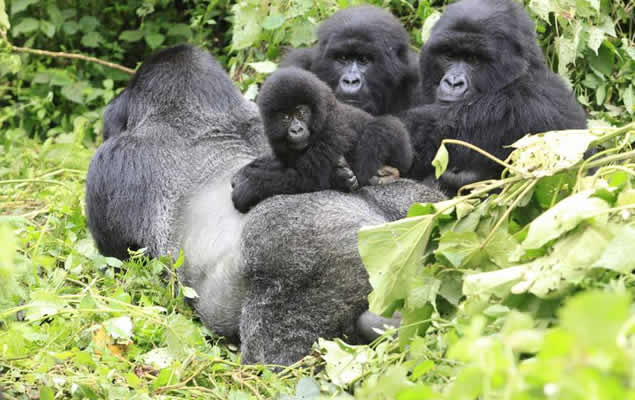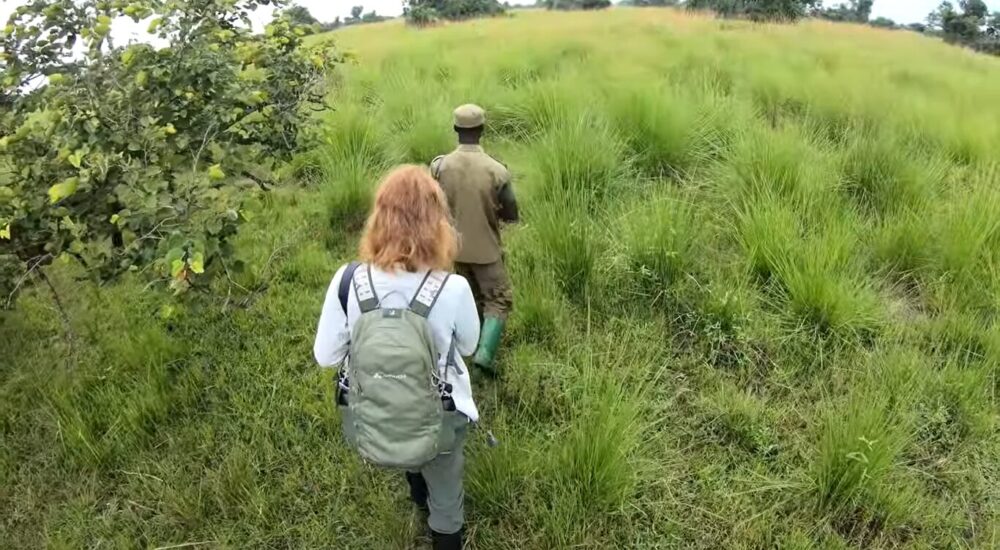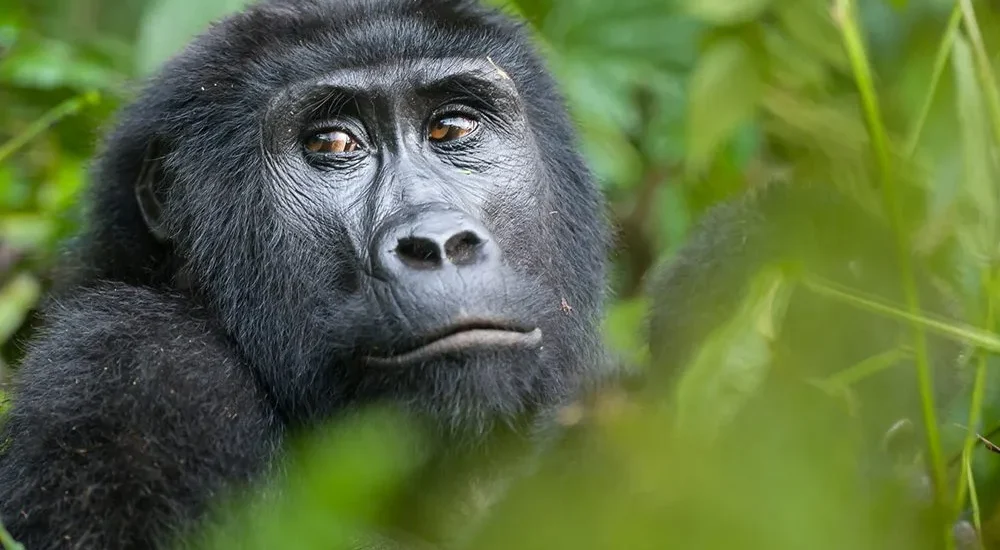Gorillas are one of the most fascinating and powerful creatures on the planet. Known for…
Is Gorilla Trekking in Uganda Ethical?
Is Gorilla Trekking in Uganda Ethical?
Gorilla trekking in Uganda has become one of Africa’s most sought-after wildlife experiences. Located in the heart of East Africa, Uganda is home to a significant population of mountain gorillas, particularly in Bwindi Impenetrable National Park and Mgahinga Gorilla National Park. Travelers from around the world visit Uganda for the opportunity to observe these majestic creatures in their natural habitat, creating unforgettable memories. However, as with many forms of wildlife tourism, questions of ethics inevitably arise, particularly when the activities involve interacting with endangered species.
In this article, we’ll explore whether gorilla trekking in Uganda is ethical, diving into issues related to wildlife conservation, community involvement, environmental impact, and the treatment of the gorillas themselves. We’ll also look at how travelers can make more ethical choices when planning their trekking adventures in Uganda.
The Conservation Value of Gorilla Trekking
One of the central arguments in favor of gorilla trekking is its significant contribution to the conservation of mountain gorillas. The mountain gorilla population is critically endangered, with fewer than 1,000 individuals remaining in the wild, most of them residing in Uganda, Rwanda, and the Democratic Republic of Congo. Uganda, in particular, has played a crucial role in the resurgence of mountain gorilla numbers.
Historically, these majestic creatures faced numerous threats, including habitat loss, poaching, disease, and human-wildlife conflict. However, the establishment of national parks and the regulation of tourism have created a stable environment where the gorilla population has been able to increase.
Gorilla trekking generates significant revenue for the Ugandan government and local communities, which is reinvested into conservation efforts, including anti-poaching patrols, research, and habitat restoration. In addition, trekking fees contribute to the upkeep of the parks, which helps preserve the natural habitats of gorillas and other wildlife species.
For example, the funds from gorilla trekking permits in Uganda have directly supported Bwindi Impenetrable National Park and Mgahinga Gorilla National Park, both of which are UNESCO World Heritage Sites. The Ugandan Wildlife Authority (UWA) oversees these efforts, ensuring that revenue from tourism is allocated to sustainable conservation programs. In this regard, gorilla trekking contributes to the long-term survival of the species.
Revenue and Community Development
Another ethical consideration revolves around the economic benefits that gorilla trekking brings to local communities. Uganda’s rural areas, where these national parks are located, often struggle with poverty and lack of access to resources. Tourism, particularly gorilla trekking, provides a vital source of income for communities near the parks.
When travelers visit Uganda for gorilla trekking, they spend money on permits, accommodation, transportation, and other services, much of which is reinvested into local economies. The trekking fees, in particular, are earmarked for community development projects, including the construction of schools, healthcare facilities, and infrastructure improvements. Local guides and porters who assist trekkers are often from nearby communities, providing employment opportunities.
Furthermore, the existence of sustainable, community-driven tourism encourages local populations to become stakeholders in conservation. By witnessing the direct economic benefits of tourism, local communities are more likely to support conservation efforts, helping to reduce human-wildlife conflict and mitigate threats to gorilla habitats.![]()
For example, in Uganda, programs like the Community Conservation Program and Revenue Sharing Scheme have ensured that surrounding communities share in the economic rewards of conservation. These programs offer tangible benefits, such as funding for schools, clean water initiatives, and even employment opportunities for local people as park rangers, guides, and hospitality staff.
Are Gorillas Harmed by Gorilla Trekking?
While the conservation and community benefits of gorilla trekking are clear, there are ethical concerns about the direct impact of the activity on the gorillas themselves. Interacting with wildlife always carries the risk of stress, disturbance, and potential harm to the animals, and mountain gorillas are no exception.
To mitigate these risks, Uganda has implemented strict regulations to ensure the safety and well-being of the gorillas during trekking. These guidelines are designed to minimize human impact on the animals and the environment:
- Limited group sizes: Only a small number of trekkers are allowed to visit a single gorilla family per day. Typically, the group size is limited to 8 people to reduce the stress on the animals and allow them space to move freely.
- Distance regulations: Trekkers are required to maintain a safe distance of at least 7 meters (23 feet) from the gorillas to avoid causing them stress or disturbance. This distance helps ensure that the gorillas can act naturally without human interference.
- Time limitations: The amount of time trekkers are allowed to spend with the gorillas is strictly regulated. In Uganda, trekkers are allowed to observe gorillas for one hour, which helps to reduce stress on the animals while still providing an opportunity for a meaningful interaction.
- Health and hygiene precautions: Given that gorillas are susceptible to human diseases, trekkers are required to wear masks and follow strict hygiene protocols, such as hand washing before the trek. This helps prevent the transmission of diseases like respiratory infections, which can be fatal to gorillas.
While these measures are put in place to protect the gorillas, the presence of humans in their habitat can still have some impact, particularly if trekkers do not follow the guidelines. However, the strict enforcement of rules in Uganda and other countries with mountain gorillas helps to mitigate these risks.
Ethical Trekking and Responsible Tourism
Ethical considerations also extend beyond the trekking itself and into how travelers approach the activity. While the conservation and economic benefits are clear, the sustainability of gorilla trekking depends on how the activity is managed and practiced. Responsible tourism is essential to ensuring that gorilla trekking remains a force for good.
Travelers can make ethical decisions when planning their gorilla trekking trip by:
- Choosing sustainable operators: Selecting a tour company that adheres to ethical practices and supports local communities and conservation efforts is crucial. Look for operators who are involved in community projects or who contribute to conservation funding.
- Respecting guidelines and regulations: Always follow the rules set by park authorities, including maintaining the appropriate distance from gorillas, wearing masks, and avoiding behaviors that could disturb the animals.
- Avoiding harmful behaviors: Never attempt to feed or touch gorillas, as this can cause stress or even aggression. Always remember that the goal is to observe gorillas in their natural environment without disrupting their behavior.
- Reducing your carbon footprint: Since eco-tourism is inherently tied to environmental sustainability, consider offsetting your carbon emissions when traveling to Uganda for gorilla trekking. Opting for eco-friendly accommodation, minimizing plastic waste, and supporting conservation initiatives can make a big difference.
Is Gorilla Trekking in Uganda Ethical?
When approached responsibly, gorilla trekking in Uganda can be considered ethical. The activity supports the conservation of a critically endangered species, provides economic benefits to local communities, and is carefully regulated to ensure the safety and well-being of the gorillas.
However, like all forms of wildlife tourism, it is crucial to approach gorilla trekking with care and respect for the environment and the animals. Travelers must choose responsible operators, adhere to ethical guidelines, and be mindful of their behavior to ensure that their experience contributes positively to both the wildlife and the local people.
In conclusion, while there are inherent ethical concerns with any form of wildlife tourism, when practiced responsibly and with respect, gorilla trekking in Uganda is a force for good. It offers a valuable opportunity to connect with one of the world’s most endangered species, contributes to conservation efforts, and supports local communities, making it a worthwhile and ethical travel experience.


